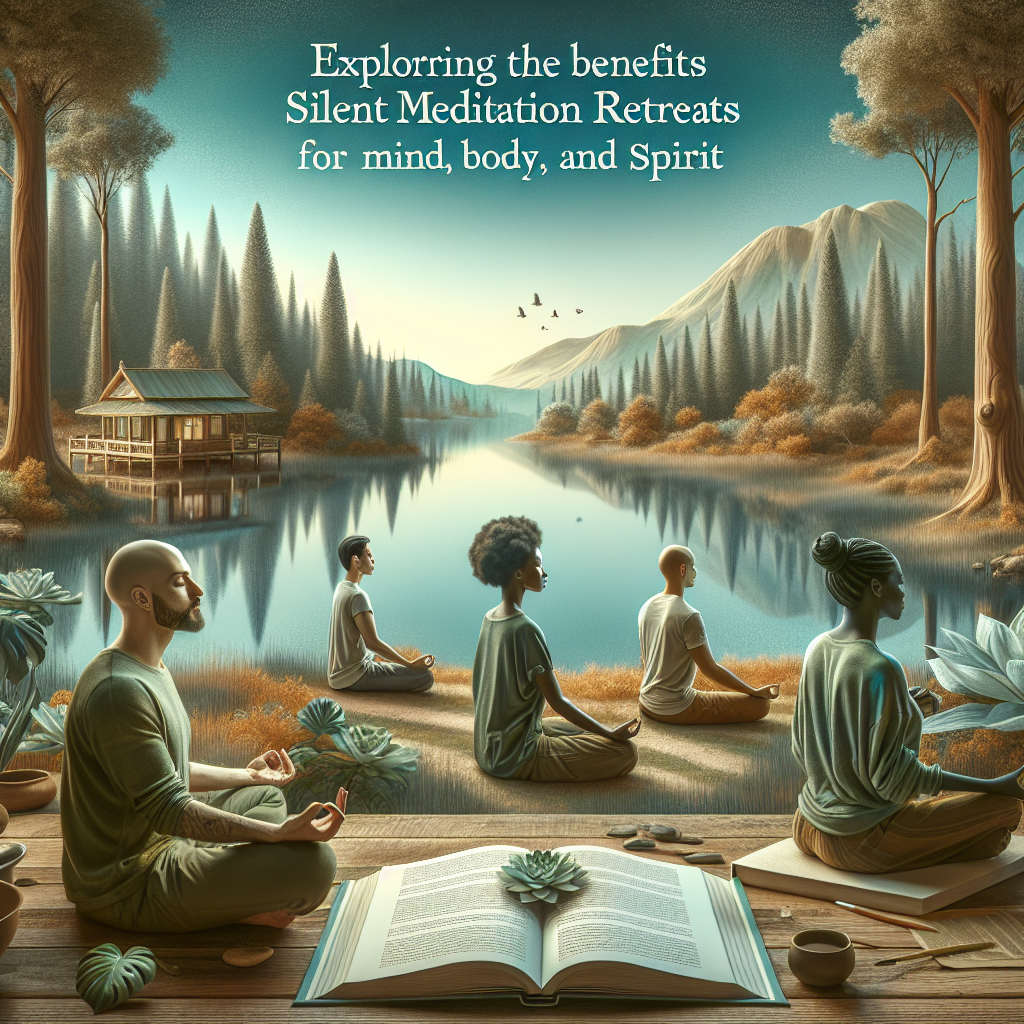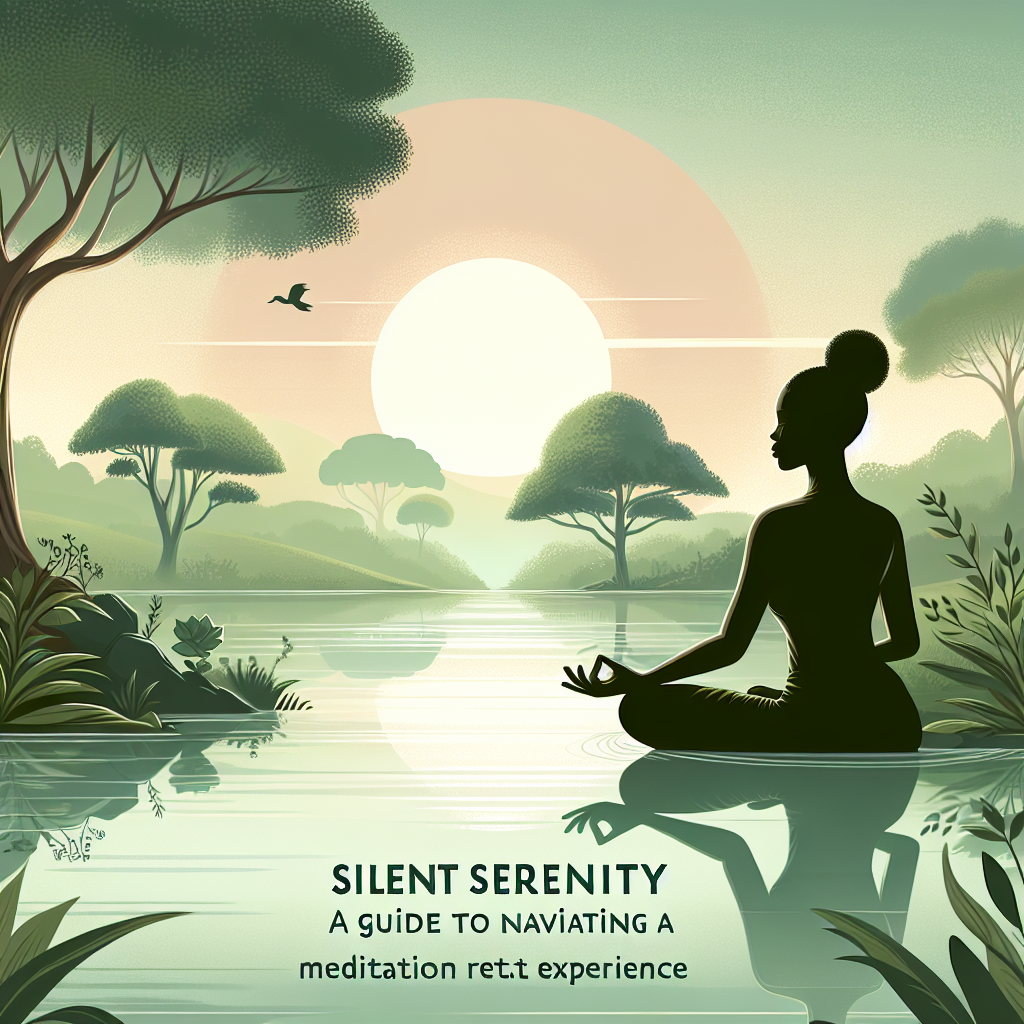In today’s fast-paced world, filled with constant distractions and noise, taking time to be silent and still can be a powerful way to recharge and reconnect with oneself. Silent meditation retreats offer individuals the opportunity to unplug from the chaos of everyday life and dive deep into their inner world. These retreats provide a sacred space for participants to explore their mind, body, and spirit in a peaceful and supportive environment. In this article, we will delve into the benefits of silent meditation retreats and how they can positively impact one’s overall well-being.
Silent meditation retreats are often held in remote, natural settings away from the hustle and bustle of urban life. Participants are encouraged to disconnect from technology, minimize distractions, and dedicate their time solely to introspection and self-discovery. The absence of verbal communication allows individuals to truly tune into their thoughts, emotions, and sensations without external influences. This profound experience of stillness can lead to a state of deep relaxation and heightened awareness.
One of the primary benefits of silent meditation retreats is the opportunity for mental clarity and focus. In today’s world of constant information overload, our minds are often cluttered with an endless stream of thoughts and distractions. By taking the time to silence our inner chatter, we can create space for clarity and insight to arise. Through regular meditation practice, individuals can cultivate a sense of mental calmness and concentration that can carry over into their daily lives.
Another significant benefit of silent meditation retreats is the impact on our physical well-being. The practice of sitting in stillness for extended periods of time can help to release tension and stress stored in the body. This can lead to reduced muscle tension, improved posture, and increased flexibility. Additionally, the deep relaxation experienced during meditation can have a positive effect on the nervous system, promoting overall health and well-being.
Silent meditation retreats also provide a powerful opportunity for spiritual growth and transformation. By turning inward and exploring the depths of our inner world, we can uncover hidden truths, insights, and wisdom that may have been obscured by the noise of everyday life. Participants often report feelings of profound inner peace, connection to something greater than themselves, and a deep sense of spiritual fulfillment.
In addition to the individual benefits of silent meditation retreats, there is also a sense of community and camaraderie that arises from sharing the experience with others. Participants often form deep bonds with their fellow retreatants, forging connections based on a shared commitment to inner exploration and self-discovery. This sense of unity and support can be a source of comfort and encouragement during the challenges and breakthroughs that may arise during the retreat.
As with any transformative experience, silent meditation retreats can also raise questions and concerns for potential participants. Below, we have compiled a list of frequently asked questions to provide clarity and guidance for those considering embarking on this journey of self-discovery.
FAQs:
Q: What can I expect during a silent meditation retreat?
A: Silent meditation retreats typically involve a combination of seated meditation, walking meditation, mindfulness practices, and group discussions. Participants are encouraged to maintain a vow of silence throughout the duration of the retreat, with designated times for meals, rest, and individual reflection.
Q: Do I need prior meditation experience to attend a silent retreat?
A: While prior meditation experience can be beneficial, it is not necessary to have any prior experience to attend a silent retreat. Retreat leaders often provide guidance and instruction on meditation techniques for participants of all levels.
Q: Will I be forced to meditate for long periods of time?
A: Silent meditation retreats usually offer a variety of meditation sessions of varying lengths to accommodate different preferences and abilities. Participants are encouraged to listen to their bodies and engage in meditation practices that feel comfortable and sustainable for them.
Q: What should I bring to a silent meditation retreat?
A: Participants are typically advised to bring comfortable clothing, a meditation cushion or bench, a water bottle, toiletries, and any personal items for their stay. Retreat centers often provide bedding, meals, and other essentials for participants.
Q: How can I prepare myself mentally and emotionally for a silent retreat?
A: Prior to attending a silent meditation retreat, it can be helpful to set intentions for the experience, cultivate a sense of openness and curiosity, and mentally prepare for the challenges and rewards of the retreat. Engaging in a regular meditation practice in the weeks leading up to the retreat can also be beneficial in preparing the mind for the stillness and introspection that lies ahead.
In conclusion, silent meditation retreats offer a unique and powerful opportunity for individuals to dive deep into their inner world and cultivate mental clarity, physical well-being, and spiritual growth. By disconnecting from the noise and distractions of everyday life and turning inward, participants can tap into a wellspring of peace, insight, and wisdom that can positively impact all aspects of their lives. Whether you are a seasoned meditator or a curious beginner, a silent meditation retreat can be a transformative and life-changing experience that resonates long after the retreat has concluded.




Leave A Comment